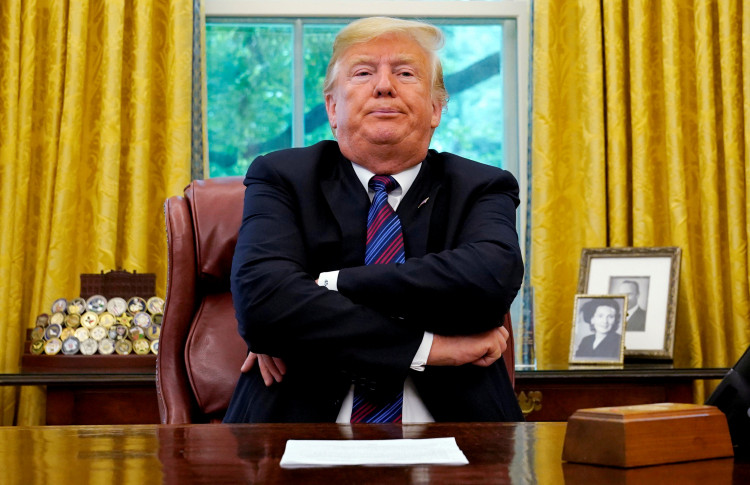The United States and Mexico have agreed to revise some sections of the North American Free Trade Agreement (NAFTA), a deal which has been criticized for years by U.S. President Donald Trump. Canada was optimistic about the changes and the market stocks soared to records high but analysts were concerned that the ongoing US-China trade war may come at a standstill because of the new deal.
Trump announced the new US-Mexico trade deal on Tuesday from his Oval Office while Mexican President Enrique Peňa Nieto was on a standby on a call. The two leaders agreed to rewrite portions of the NAFTA, the three-country trade deal among the United States, Mexico, Canada designed to abolish trade barriers among them.
The revisions were aimed to modernize the trade deal to make it aptly applicable to the situations at present. Canada did not join the preliminary discussions but expressed optimism to agreements reached that involve auto tariffs and labor rights. Still, Ottawa has some sticking points that warrant more negotiations.
The major revisions agreed between Trump and Mexico include a deal that would require that 75 percent of parts of automobiles sold in North America be manufactured in the United States or Mexico. The current NAFTA version only required 62 percent. The revised version also requires that 40 percent to 45 percent of car parts sold within the region be made by workers that will be paid at least $16 per hour. The agreement shall only be in effect for 16 years and is to be reviewed and revised as needed every six years.
Reacting to the agreement, Canadian Foreign Minister Chrystia Freeland said it has a significant impact for workers in Canada and the United States. There are, however, some more points that hinder the country's full agreement.
Reuters noted that dairy farmers from Canada are under a system that places high tariffs to limit produce that is being imported to the United States. Trump wanted to scarp those tariffs or at least exclude the pricing system for milk that impacts Washington's exports of milk ingredients.
The current version of the NAFTA deal allows the 10-year data exclusivity between the United States and Mexico for biologic drug makers to be protected by copyright laws for 50 years. Canada disagrees and would like to negotiate for a lower threshold for the intellectual property rights.
U.S. Treasury Secretary Steven Mnuchin said that the Trump administration will proceed with the deal with Mexico even without Canada, particularly that Nieto would like to sign the agreement before he steps down in November. If this happens, Trump said NAFTA is going to be abolished and instead will be called United States-Mexico trade deal.
Investors were optimistic regarding a plausible US-Mexico trade deal. CNN Money noted that both the S&P 500 and the Nasdaq closed at record highs following Trump's announcement. Nasdaq peaked at 8,000 while Dow climbed 259 points and closed above 26,000 for the first time since Feb 1.
The development, however, may indicate that Trump might not seek an immediate end to trade conflicts with China according to some economists. This possibility worries market observers as the trade war between the world's two largest economies may also impact other geopolitical issues.
Rob Carnell and Prakash Sakpal, economists at ING Bank NV in Singapore, told Bloomberg that the deal with Mexico might make Trump more domineering towards China. The New Mexico deal does not look good for the Asian market as it only placed Trump in a position to play hard-ball with Beijing, the economists say.
Chinese officials are more likely thinking of the same way, said Amy Celico, former Senior Director for China Affairs at the U.S. Trade Representative office. Beijing officials may be feeling that its situation with the United States is more complicated, hence, will take much longer and will require tougher stance before attaining resolution.






